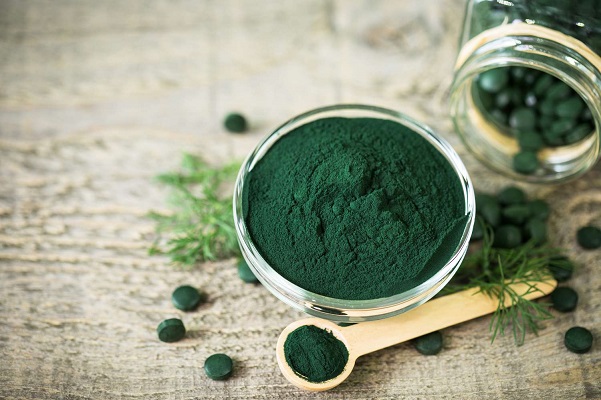On This Page
Overview
Young, green soybeans called edamame are picked before they reach maturity. When the soybean pods are fully developed, almost 80% mature, and just beginning to turn yellow, farmers harvest them. They can be purchased frozen, new, or shelled. East Asian cuisine frequently uses edamame as an ingredient. Edamame is a popular food in East Asia. These beans are nutrient-rich and high in protein. The advantages of edamame go beyond its lack of gluten. These young soybeans can be eaten raw, have little calories, no cholesterol, and are still developing.
Edamame is a nutritious food because of its high nutritional value. The nutritional composition of the beans is excellent, and they enhance cardiovascular health. Additionally, they can control blood sugar levels and reduce the risk of cancer.
Synonyms of Edamame
- Soybean
- Glycine max (L) Merr.
Nutritional Facts of Edamame
Nutritional value per 100 gm:-
| Energy: | 121 kcal |
| Carbohydrates: | 8.9 g |
| Sugars: | 2.18 g |
| Dietary fiber: | 5.2 g |
| Fat: | 5.2 g |
| Protein: | 11.9 g |
Phytochemical Constituents of Edamame
- Soluble sugars (sucrose, glucose, fructose, raffinose, and stachyose), Alanine
- Crude protein
- Oil
- Starch
- Moisture
- Neutral detergent fiber, and ash
Therapeutic Uses of Edamame
- Lowers Cholesterol
Edamame, which is abundant in dietary fiber, antioxidants, vitamin K, and other nutritional elements, has a big impact on lowering LDL, or bad cholesterol. Edamame or soybeans should be added to a regular diet, according to experts, to lower cholesterol levels by 3% and lower the risk of sudden heart attacks and other cardiovascular issues.
- Prevention against Cancer
It is strongly advised to consume soybeans and products made from them to avoid cancer. They are advised, particularly for malignancies of the prostate, lungs, breast, and colon. A chemical found in soy proteins known as phytoestrogen is known to have effects comparable to those of human estrogen. Soy protein contains isoflavone, a form of phytoestrogen. Isoflavones are thought to be quite beneficial in cancer prevention. Additionally, omega-3 fatty acids have been linked to a lower risk of colon cancer.
- Improves Cognitive Processes
Edamame is a rich source of isoflavones, an antioxidant that is well known for helping to prevent osteoporosis and enhance brain function. These green soybeans not only help to slow down cognitive loss in the elderly but also help to ward off neurological diseases like Parkinson’s and Alzheimer’s.
- Diabetes Mellitus (Type 1 and 2)
Antioxidants found in soybeans can aid in the management of diabetes. It lessens the excessive digestion of carbohydrates, shields pancreatic cells from free radical damage, and improves insulin output as a result. More insulin lowers blood sugar levels, aiding in the management of diabetes.
- Inflammatory bowel disease
Because soy contains proteins and isoflavones, it helps to treat inflammatory bowel illness by reducing the symptoms of inflammatory bowel syndrome (IBS). By preventing the release of inflammatory mediators and decreasing inflammation naturally, these elements have an anti-inflammatory effect. They also have antioxidant capabilities, which prevent damage to intestinal cells.
Home Remedies Edamame
- Manage the symptoms of aging
The essential hormone estrogen, which supports maintaining skin suppleness, is lost as we get older. By releasing estrogen through the phytoestrogen it contains, soybean prevents the appearance of wrinkles, fine lines, discoloration, and dark spots.
- Nourishes hair
Your hair may respond quite favorably to a natural treatment like soybean. The omega-3 fatty acids in soybeans make them an essential component for treating dry, brittle hair and hair loss. Soybean gives hair the necessary elasticity and aids in improving its texture.
- Maintaining Nails
Brittle nails are a recurring issue. Additionally, excessive nail dryness and nail fungus are two of the main causes of brittle nails. Soybean is known for its capacity to heal nail fungus and its hydrating properties aid in hydrating the nails.

Have A Health Issue?
Consult Online
- Dr. Sahil Gupta (B.A.M.S., M.H.A.)
Ayurvedic Allergy Specialist
CEO & Founder of IAFA®
Ayurvedic aspects of Edamame
Although Soybean is not mentioned in ancient Ayurvedic writings, traditional practitioners also do not care for this protein-rich bean. While it is suggested for balancing the Vata-related doshas, people with stomach issues should avoid it.
Given its high protein concentration, edamame is extremely difficult to digest, according to Ayurvedic experts.
Daily Dose: One cup of edamame daily is regarded safe for consumption.
Side Effects of Edamame
Soy Allergy
Consuming edamame is generally safe. However, avoid eating edamame if you are sensitive to beans in general or other soy-based items like soy sauce, tofu, etc to prevent Soy Allergy. Use moderation when eating this, as you would with any other food. Edamame overconsumption can result in diarrhea, stomach pain, and constipation.
Conclusion
Edamame, or young soybeans, is an East Asian delicacy that is high in plant-based protein. Edamame is a favorite dish of those trying to lose weight because it has been a component of Chinese and Japanese cuisine for hundreds of years. Edamame, which is typically available in frozen form due to its short shelf life, needs to be thawed before cooking.
Numerous studies indicate that edamame, which is prized for its rich nutritional content, which includes a variety of minerals, vitamins, and antioxidants, can help people lose weight, protect their hearts, control their blood sugar levels, fend off cancer, and delay the onset of dementia.
Eat edamame in moderation if you are allergic to soy products. If you notice soy allergy or other adverse effects from edamame you can get natural ayurvedic management at IAFA from Dr. Gupta after online ayurvedic consultation; he uses natural herbs to treat any illness.
References
- https://en.wikipedia.org/wiki/Edamame#:~:text=A%20100%2Dgram%20reference%20serving,%25%20DV)%20(table).
- https://www.frontiersin.org/articles/10.3389/fsufs.2021.620426/full#:~:text=The%20determined%20chemical%20constituents%20included,neutral%20detergent%20fiber%2C%20and%20ash.










